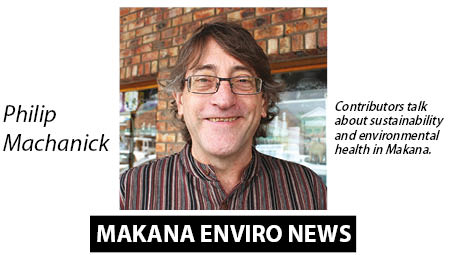Compiled by Philip Machanick
Forests and environmentalism
George Monbiot’s book Feral explores the concept of rewilding. A key idea is that natural spaces should be self-managed, while the mindset of “stewardship” risks over-managing the environment.
Monbiot takes a controversial stance of reintroducing real wild spaces into Europe. He uses parts of Scotland and Wales as a foil. Large areas of apparently pristine countryside are in fact so denuded of natural ecosystems that he calls them deserts. He puts much of the blame on excessive grazing by sheep and to a lesser extent by cattle and horses.
A big part of the problem is EU incentives to clear land of wild vegetation, something he sees echoed in the British desire for “tidiness”. Nature is not “tidy”. Trees lie where they fall and can take many years to rot away. If they land in a watercourse, they slow the flow. This, he argues, is a feature, not a bug – clearing fallen vegetation from waterways promotes flooding because it slows the flow.
He goes a step further on tidiness – he does not see it as sufficient to stop pointless “clean ups” of vegetation but also sees a case for introducing beavers, long-extinct in the UK, to further promote this sort of “untidiness”. Beavers create dams that become micro-habitats for a variety of other species. As herbivores, they do not interfere with other wildlife and can increase fish populations by the way they alter the environment.
The opposition to these ideas comes from farming interests, who are wedded to the notion of “tidy” land (reinforced by EU incentives) and hunters who want an environment that only supports the species they like to shoot.
So how does this apply to South Africa? We have plenty of wild spaces including game reserves and farms and undeveloped areas. However, we still have a tendency to view “undeveloped” as undesirable and have inherited some of the British penchant for tidiness. We also have a tendency to view landscape as it exists now as if it is “natural” when large areas have been deforested and persist in that state because of grazing animals or no effort to reforest.
Let us focus on one aspect of rewilding, reforestation.
In some cases, it is easy – just remove the excessive grazing animals that specialise vegetation to their preference, grass. In other cases, some active intervention is needed, such as planting pioneer species that create the shade needed for trees and removing harmful invaders. When I lived in Australia, I saw an example of how this could be done on a 28ha former farm called Dilkusha, in Queensland. Invaders such as lantana and privet have been systematically cleared over nearly two decades. Pioneer species and indigenous trees have been planted and as the environment returned to its natural state, the seed bank has sprung to life, with a growing number of indigenous plants that had been suppressed by invaders starting to grow. I visited the neighbouring highly degraded farm. Where Dilkusha is damp with numerous springs, the neighbouring land is bone dry with little growing besides very old trees, grass and invaders.
Biodiversity is important for a number of reasons including protecting species that may otherwise die out and our own wellbeing. The latter includes providing a bank of potential natural remedies, human psychology (we need exposure to wilderness) and reducing the dangers of monoculture. Monoculture provides an easy target for the evolution of plant pathogens, over-specialises pollinators and creates an arms race between competing species and agricultural plants. In general terms, the less diverse the biome is, the easier it is for harmful organisms to evolve in competition to those we value.
More about Dilkusha: www.lbccg.org.au/dilkusha
Looking wider
Brazil elected Jair Bolsonaro as president in October, and he has threatened to open up the Brazilian Amazon rainforest to commercial exploitation. Since 2006, Brazil has lost nearly a quarter of a million square kilometres of rainforest, an area bigger than the Eastern Cape.
The notion that despoiling a region of such vast biodiversity can create wealth by short-term wins like mining has time after time proven to be illusory. The Amazon rainforest plays a massive role in reducing carbon dioxide levels of the atmosphere and its natural remedy potential has been shown to be extremely promising.
Brazil has a great treasure and their new president is talking about throwing it all away. We can and should do better.
Find us Online: www.grocotts.co.za/category/
Contacts for Makana Enviro-News:
Nikki Köhly: n.kohly@ru.ac.za, 046 603 7205 | Tim Bull: timothybull05@aol.com, 076 289 5122 | Jenny Gon: j-gon@intekom.co.za, 046 622 5822 | Philip Machanick: p.machanick@ru.ac.za, 046 603 8635.



